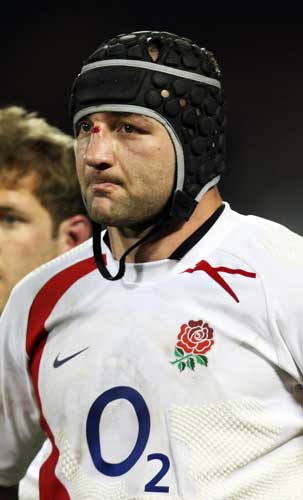Peter Bills: Whoever's captain, England must first build a team

Your support helps us to tell the story
From reproductive rights to climate change to Big Tech, The Independent is on the ground when the story is developing. Whether it's investigating the financials of Elon Musk's pro-Trump PAC or producing our latest documentary, 'The A Word', which shines a light on the American women fighting for reproductive rights, we know how important it is to parse out the facts from the messaging.
At such a critical moment in US history, we need reporters on the ground. Your donation allows us to keep sending journalists to speak to both sides of the story.
The Independent is trusted by Americans across the entire political spectrum. And unlike many other quality news outlets, we choose not to lock Americans out of our reporting and analysis with paywalls. We believe quality journalism should be available to everyone, paid for by those who can afford it.
Your support makes all the difference.Does Martin Johnson, always England rugby's go-to man in his playing days, subscribe to the Oscar Wilde school of thought on the topic of leadership? The disingenuous might suggest as much.
'I like to do all the talking myself' wrote the great man. 'It saves time and prevents arguments'.
If such is the case and Johnson agrees, we can stop fussing and worrying about who will lead England into next month's Six Nations Championship, the first for Johnson in his new role. These days, most professional rugby players' minds are so stuffed full of instructions from their coaches before they even set foot on a field that the role of captain during a game has become largely superfluous.
Tactics, decisions on whether to go for goal or kick penalties into touch dependant upon position have been, in the main, pre-determined. If any captain started trying to pass on his own stream of instructions in the cauldron of a game, there would be a serious danger of the players' brains overloading and blowing a fuse.
Thus, apart from running out first and making sure the mascot doesn't get lost, most captains nowadays just get on with their own game and, like every other poor schmuck in the side, do as the small army of coaches have told them, within the sanctuary of the dressing room.
England hardly has a great tradition of cerebral leaders, men who were able to think on their feet and if necessary, change tactics amid the course of a game. In 1991 at the World Cup final, England's ludicrous pre-match decision to cast aside a forward orientated game in favour of something with the mindset of 7s, never remotely looked like succeeding.
No matter, Will Carling, England's captain on the day, did absolutely zilch about it. Maybe he couldn't see it, perhaps he didn't have the brain to work out what was blindingly obvious to everyone else at Twickenham that day, HM The Queen probably included. Had England reverted to type and stuffed the ball back up their jerseys which is where it should have remained in the first place, then they'd have squeezed the life out of the under powered Wallabies. So much for captaincy...
That is not to suggest Steve Borthwick, the present England captain, is a Will Carling. But it's an open secret that Borthwick is not considered likely to lead England into the next World Cup. Ability at the highest level mitigates against it.
Should that bother England? I do not believe so. The England coaching team has discussed three names as possible alternatives to Borthwick - Phil Vickery, Tom Rees and Mike Tindall. For very good reasons, there are firm minuses against all three, fine players as they undoubtedly are.
Vickery is a warrior but at nearly 33 with enough miles on the clock to get him halfway across the world, he's hardly a long term bet. Besides, so the reasoning goes, Matt Stevens of Bath is thought likely to take the tight head role on a permanent basis, sooner rather than later.
Tindall is 30, a better age but with a lot of major injuries behind him. Will he really still be as effective, hammering away at the coalface when England head off to New Zealand for the World Cup in September 2011? It seems doubtful.
That leaves the man England want to lead them to that World Cup, Rees. The London Wasp is a fine footballer but has yet to cement the open side role in the England team. Michael Lipman of Bath is a serious and persistent challenger.
The selectors have wisely desisted from lumbering some young, up and coming player, with the burdensome yoke of captaincy. Players like Danny Care and Danny Cipriani are still learning the game at international level. True, England plunged Carling into the role as a youngster but that was then, in the amateur era. It is a different ball game nowadays.
For me, the selectors should stick with Borthwick. He's durable, intelligent, able and spirited. He won't let anyone down. Like the selectors, I'd hope that Rees develops in time to take the role for 2011 but time will tell on that one.
But surely the salient point is that England has more important things to worry about than the captaincy issue. They need to start building a team of some coherency, promise and ability. At this point in time, it doesn't frankly matter who leads them. What they must achieve collectively in this Six Nations is far more urgent and crucial than finding a captain. They need to fashion a team good enough to compete and win at this level.
If they do that, I'm sure the captaincy issue will settle itself in due course.
Join our commenting forum
Join thought-provoking conversations, follow other Independent readers and see their replies
Comments